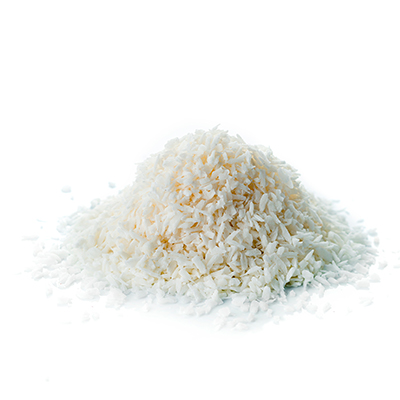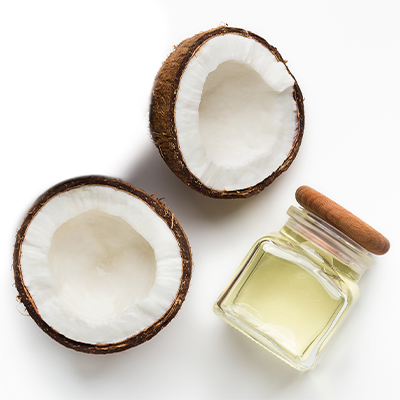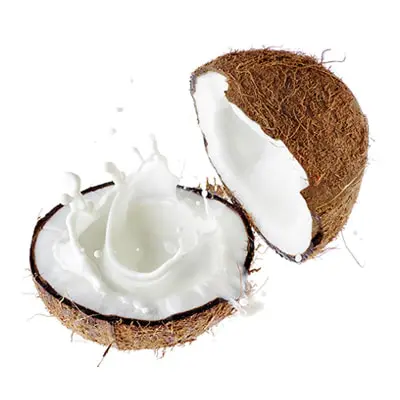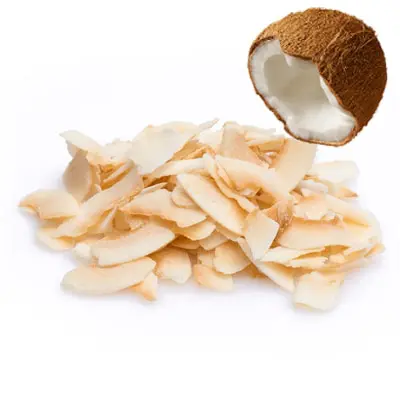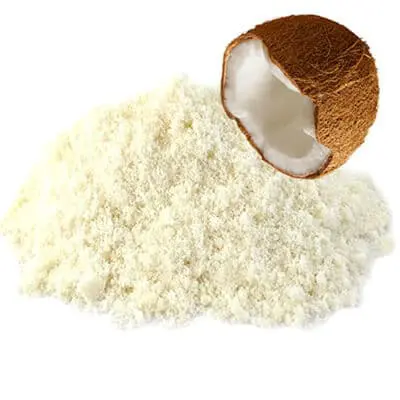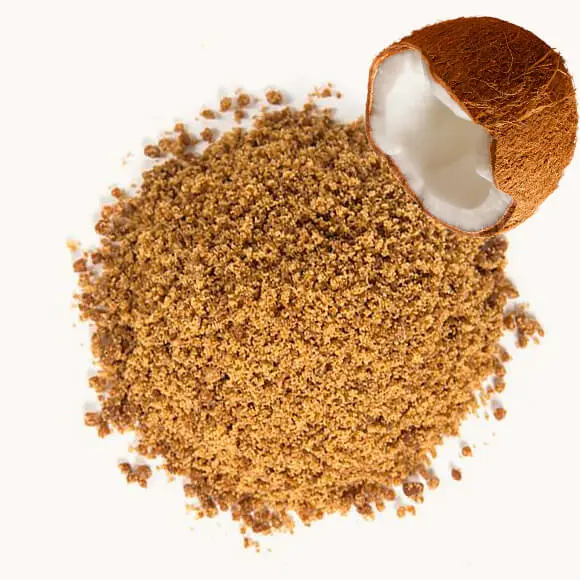Coconut (Cocos nucifera) is the name by which the world knows the tree that has fed populations for thousands of years, while its leaves provided material to make clothing and shelter, and its shell has been carved into utensils, bowls and musical instruments. The scientific name comes to us courtesy of the early Spanish explorers who called it ‘coco’, meaning ‘monkey face’ because of the indentations make the hairy nut resemble the head and face of a monkey. Nucifera simply means ‘nut-bearing’.
Coconut oil has been used by Asian and Pacific islanders both as a food and a medicine for thousands of years. Used for treating a wide spectrum of health problems ranging from abscesses to baldness to kidney stones and more, it suffered disparagement in the mid-20th century due to researchers thinking its high saturated fat content was bad for our health. After millennia of love and respect, coconut oil was now said to be dangerous and something to avoid. Thank goodness, research continued and coconut oil has been fully redeemed and restored to its rightful position in our healthy pantries.
There was a time in the 1960’s when scientists told us to fear saturated fats because they raised cholesterol levels. Goodbye delicious butter and coconut oil, hello polyunsaturated vegetable oils. The American edible oil industries had a field day and inspired new governmental dietary guidelines that moved their product to the forefront, and demonized coconut oil.
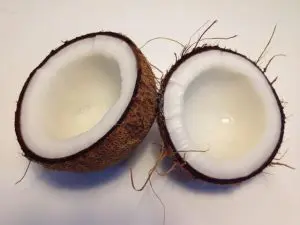
So what’s the actual truth here?
At the heart of the matter is fat. Fatty acids to be exact. What was misunderstood at the outset of the big switch to polyunsaturated oils, was that fatty acids undergo different metabolic processes, depending on their construction. There are Medium Chain Fatty Acids (MCFAs) and Long Chain Fatty Acids (LCFAs). In the human gastrointestinal tract, fats are handled differently depending on what type they are. MCFAs, which are the type of fatty acids in coconut oil, are transported directly to the liver, while LCFAs are transported through the lymph system. MCFAs (as in coconut oil) then enter the cells’ mitochondria and undergo preferential oxidation. This is important, because it means that the MCFAs metabolize better than the LCFAs, i.e. the fatty acids don’t get stored in the body’s cells – they get burned up first! This has been proven out in animal tests where long-term MCFA feeding resulted in ‘attenuated weight accretion’. MCFAs were now known to hold huge potential as weight loss agents. MCFAs help protect against heart disease, helping to lower the risk of atherosclerosis.
Coconut oil is good for us in other ways too.
About 50% of the fatty acids in coconut oil are 12-carbon lauric acid. When this is ingested, it then forms monolaurin. Both lauric acid and monolaurin can kill harmful pathogens like bacteria, viruses and fungi. They help to kill Staphylococcus aureus (a dangerous pathogen) and Candida albicans which is a common source of yeast infections in humans.
Coconut oil can raise good HDL cholesterol.
It’s a great all purpose part of our cosmetics tool box. It protects the moisture content of the skin, can reduce eczema symptoms and protect hair against damage.
Research is just starting to show very encouraging signs that coconut oil could be useful in combatting dementia. The studies in this area are still very new, and have barely scratched the surface of this important field. However, so far, there are signs that brain function can be positively improved with the consumption of MCFAs.
More Information
Sources:
The History of Coconut Oil and Where it Came From
https://www.healthy-oil-planet.com/history-of-coconut-oil.html
The History Of Coconut Oil
https://coconutoilworks.com/the-history-of-coconut-oil/
Coconut (Cocos Nucifera) the Tree of Life
https://www.coconutresearchcenter.org/
Top 10 Evidence-Based Health Benefits of Coconut Oil
https://www.healthline.com/nutrition/top-10-evidence-based-health-benefits-of-coconut-oil
Medium chain fatty acid metabolism and energy expenditure: obesity treatment implications.

